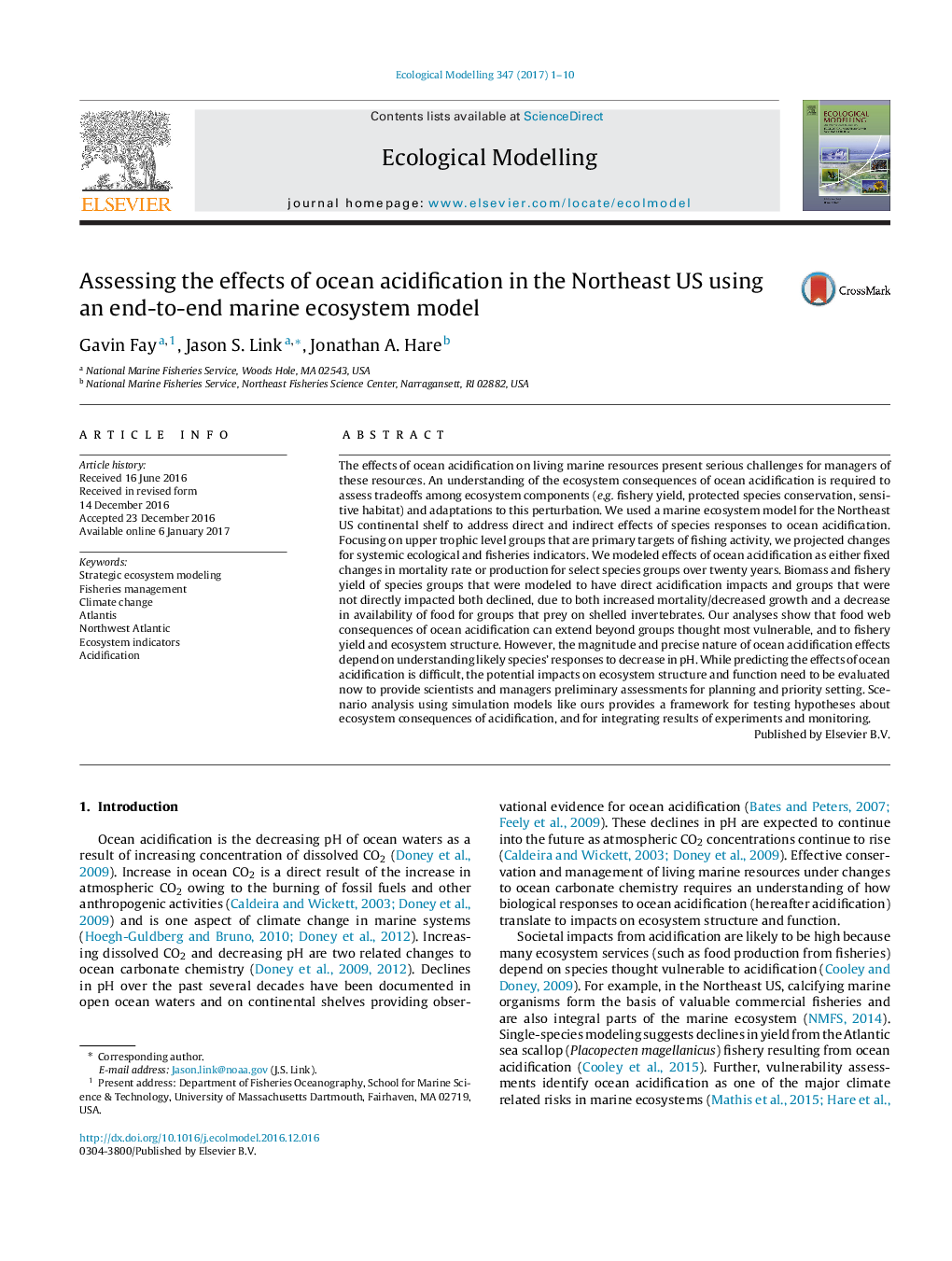| Article ID | Journal | Published Year | Pages | File Type |
|---|---|---|---|---|
| 5742328 | Ecological Modelling | 2017 | 10 Pages |
â¢Ocean acidification can not only impact marine taxa directly, but also entire marine food webs and ecosystems.â¢We used an ecosystem model for the Northeast US continental shelf to evaluate direct and indirect effects of responses to ocean acidification.â¢The magnitude of projected impacts to shelled invertebrates was variable, but generally deleterious, consistent with other studies.â¢Our analyses show that food web consequences of ocean acidification can extend beyond groups thought most vulnerable.â¢Ocean acidification can ultimately impact fishery yield and ecosystem structure.
The effects of ocean acidification on living marine resources present serious challenges for managers of these resources. An understanding of the ecosystem consequences of ocean acidification is required to assess tradeoffs among ecosystem components (e.g. fishery yield, protected species conservation, sensitive habitat) and adaptations to this perturbation. We used a marine ecosystem model for the Northeast US continental shelf to address direct and indirect effects of species responses to ocean acidification. Focusing on upper trophic level groups that are primary targets of fishing activity, we projected changes for systemic ecological and fisheries indicators. We modeled effects of ocean acidification as either fixed changes in mortality rate or production for select species groups over twenty years. Biomass and fishery yield of species groups that were modeled to have direct acidification impacts and groups that were not directly impacted both declined, due to both increased mortality/decreased growth and a decrease in availability of food for groups that prey on shelled invertebrates. Our analyses show that food web consequences of ocean acidification can extend beyond groups thought most vulnerable, and to fishery yield and ecosystem structure. However, the magnitude and precise nature of ocean acidification effects depend on understanding likely species' responses to decrease in pH. While predicting the effects of ocean acidification is difficult, the potential impacts on ecosystem structure and function need to be evaluated now to provide scientists and managers preliminary assessments for planning and priority setting. Scenario analysis using simulation models like ours provides a framework for testing hypotheses about ecosystem consequences of acidification, and for integrating results of experiments and monitoring.
